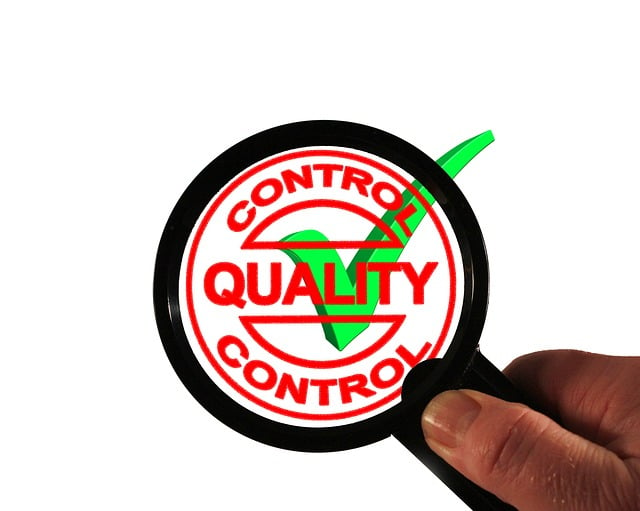Understanding and adhering to mold disclosure laws is crucial for buyers and sellers in real estate transactions. These laws require transparency regarding known or recent mold issues, protecting both parties from legal disputes and financial losses. A comprehensive real estate mold inspection identifies hidden growth, impacting home value and financing decisions. Buyers must be aware of potential risks to avoid significant post-purchase losses, while sellers face consequences for undisclosed mold problems, including mortgage complications and reduced property value. Conducting a real estate mold inspection is vital for complying with regulations and mitigating disputes related to mold disclosure laws, buying or selling homes with mold, home value impacts, and mortgage issues due to mold.
“Uncovering the Legal Aspects of Mold Disclosure: A Comprehensive Guide. In today’s real estate market, understanding mold disclosure laws is paramount for buyers, sellers, and agents alike. This article delves into the legal implications surrounding hidden mold issues, offering a detailed overview of responsibilities and rights. From buying a property with existing mold to selling with undisclosed hidden mold, we explore potential liabilities and the significance of real estate mold inspections. Additionally, we uncover the impact of mold on home value and mortgage considerations, providing essential insights to protect all parties involved.”
- Understanding Mold Disclosure Laws: A Comprehensive Overview
- Buying a House with Mold: Legal Responsibilities and Rights
- Selling a Property with Hidden Mold: Potential Liabilities for Sellers
- The Role of Real Estate Mold Inspections in Legal Disputes
- Home Value, Mold, and Mortgage Implications: Protecting Your Interests
Understanding Mold Disclosure Laws: A Comprehensive Overview

Understanding Mold Disclosure Laws: A Comprehensive Overview
When it comes to buying or selling a house, especially one with potential mold issues, knowledge of local mold disclosure laws is crucial. These regulations are designed to protect both buyers and sellers by ensuring transparency regarding hidden problems that could impact a property’s value. For instance, in many jurisdictions, real estate agents are legally obligated to disclose known mold concerns during the sale process. Failure to do so may lead to legal repercussions for the seller.
A real estate mold inspection is often a key step in navigating these laws. It helps identify hidden mold growth and provides valuable information for both parties involved. For buyers, understanding home value and mold is essential; undisclosed mold problems can result in significant financial losses during or after the purchase due to required repairs and reduced property value. Additionally, mortgage issues due to mold can arise, complicating the financing process, especially if the Lender discovers non-disclosed risks associated with the property.
Buying a House with Mold: Legal Responsibilities and Rights

When purchasing a home, especially one that has been on the market for some time, it’s crucial to be aware of potential hidden issues like mold. Buying a house with mold can have significant legal implications. In many jurisdictions, there are specific mold disclosure laws in place to protect both buyers and sellers. These laws require real estate agents and sellers to disclose any known mold issues or recent remediation efforts during the selling process. Failure to do so may result in legal repercussions for the seller.
If a buyer discovers mold after purchasing the property, they have rights and options. A real estate mold inspection is often recommended to assess the extent of the issue. If the mold was present at the time of sale but not disclosed, the buyer could pursue legal action, potentially seeking compensation or even rescinding the sale. Additionally, mortgage issues due to mold can arise, as lenders may refuse to provide financing for properties with significant mold problems, impacting the home’s value.
Selling a Property with Hidden Mold: Potential Liabilities for Sellers

Selling a property with hidden mold can expose sellers to significant legal consequences and financial liabilities. Many regions have implemented strict mold disclosure laws that require property owners to reveal any known mold issues during the sale process. Failure to disclose could lead to buyers discovering mold after purchasing the house, resulting in potential legal disputes and financial losses for the seller. If a buyer suffers health issues or property damage due to hidden mold, they may pursue legal action against the sellers, seeking compensation for medical expenses, repairs, or even the cost of relocating.
In addition to legal repercussions, selling a house with mold can negatively impact the property’s value and marketability. A real estate mold inspection is often required during the buying process, and evidence of mold may deter potential buyers or lead them to negotiate a lower price. Moreover, lenders are increasingly scrutinizing properties for mold issues, which could result in mortgage issues and difficulty securing financing. Homeowners with undisclosed mold problems may face long-term financial challenges, including ongoing repair costs and the potential for reduced property value, which can affect their ability to sell or refinance in the future.
The Role of Real Estate Mold Inspections in Legal Disputes

When buying or selling a house, a real estate mold inspection is crucial in navigating legal disputes related to mold disclosure laws. These inspections are designed to uncover hidden mold issues that might affect the property’s value and the health of its occupants. A thorough inspection can identify not only the presence but also the type and severity of mold contamination, which is essential information for both buyers and sellers.
In many jurisdictions, there are specific mold disclosure laws in place to protect homebuyers and ensure transparency. Failure to disclose known mold problems during the selling process can lead to significant legal consequences. Buyers may face mortgage issues due to unexpected mold discoveries after purchasing the property, potentially impacting their financial stability. Therefore, a real estate mold inspection serves as a safeguard for all parties involved, ensuring that any potential mold-related concerns are addressed before finalizing the transaction and protecting against future disputes.
Home Value, Mold, and Mortgage Implications: Protecting Your Interests

Buying or selling a house with mold can have significant implications for both parties involved. One of the most critical aspects to consider is the home’s value and how mold affects its marketability. Mold disclosure laws vary across jurisdictions, but generally, sellers are obligated to disclose known mold issues to potential buyers. Failure to do so may lead to legal consequences, including financial penalties and even litigation.
For prospective buyers, a real estate mold inspection is an essential step in the purchasing process. This proactive measure helps protect their interests by identifying any hidden mold problems. If a buyer discovers undisclosed mold during or after the purchase, they may have grounds to negotiate repairs, seek compensation, or even terminate the sale without financial penalty, depending on local laws and the severity of the issue. Mortgage lenders also take note of mold-related issues, as they can impact the property’s value and the borrower’s ability to repay their loan.














